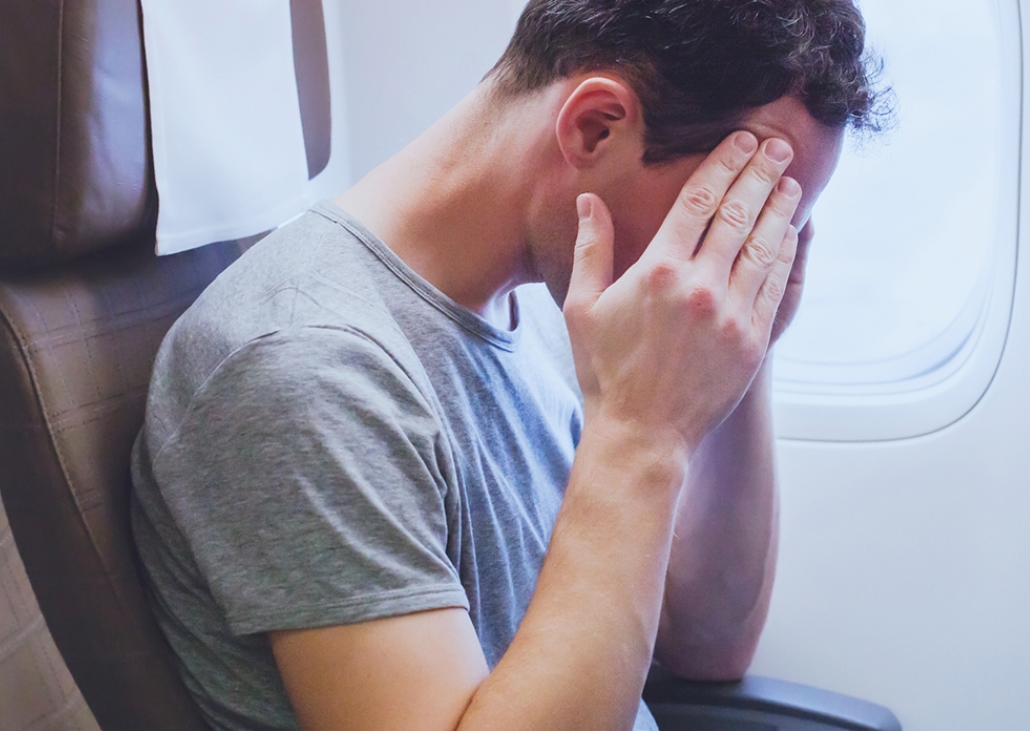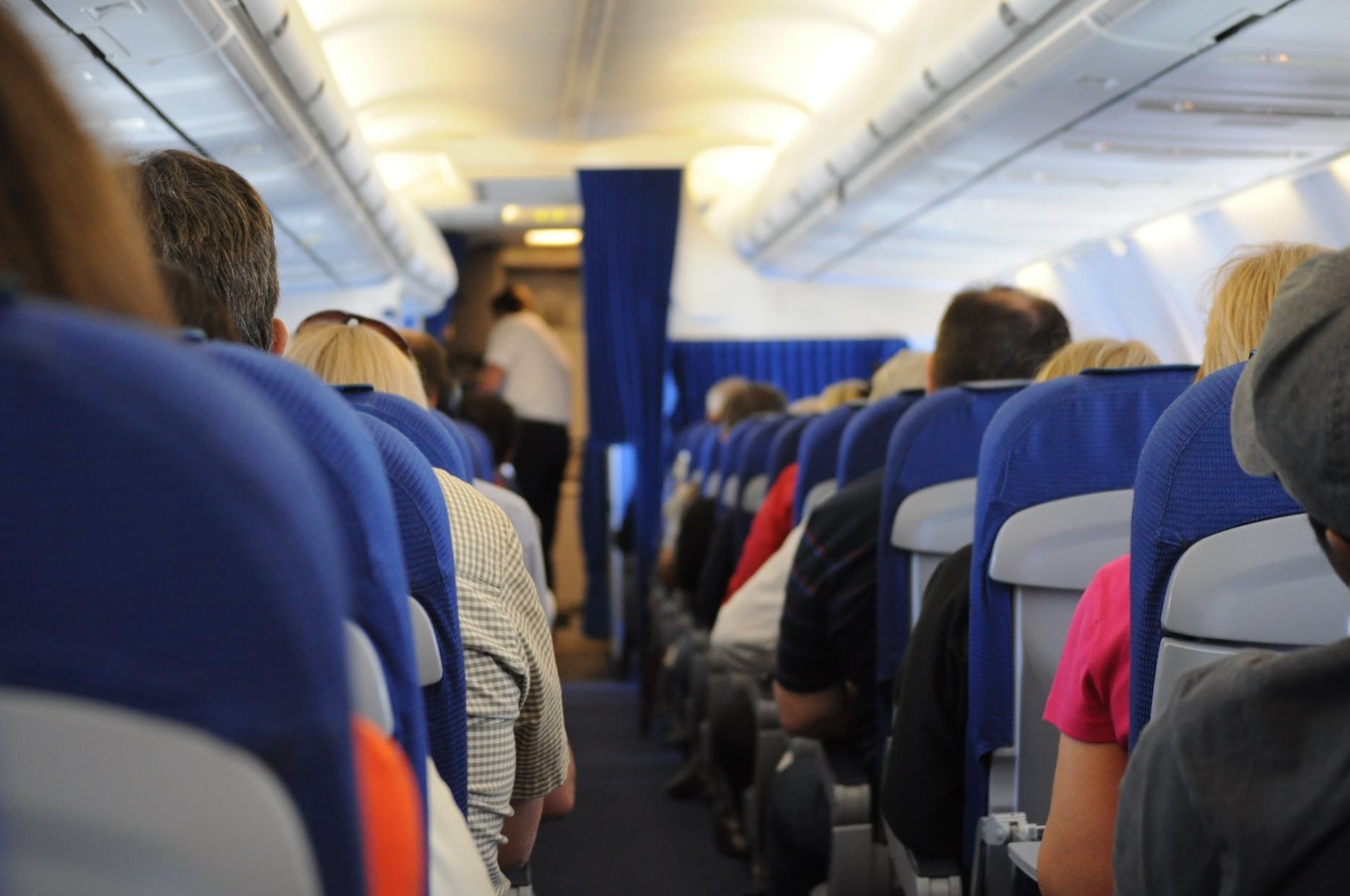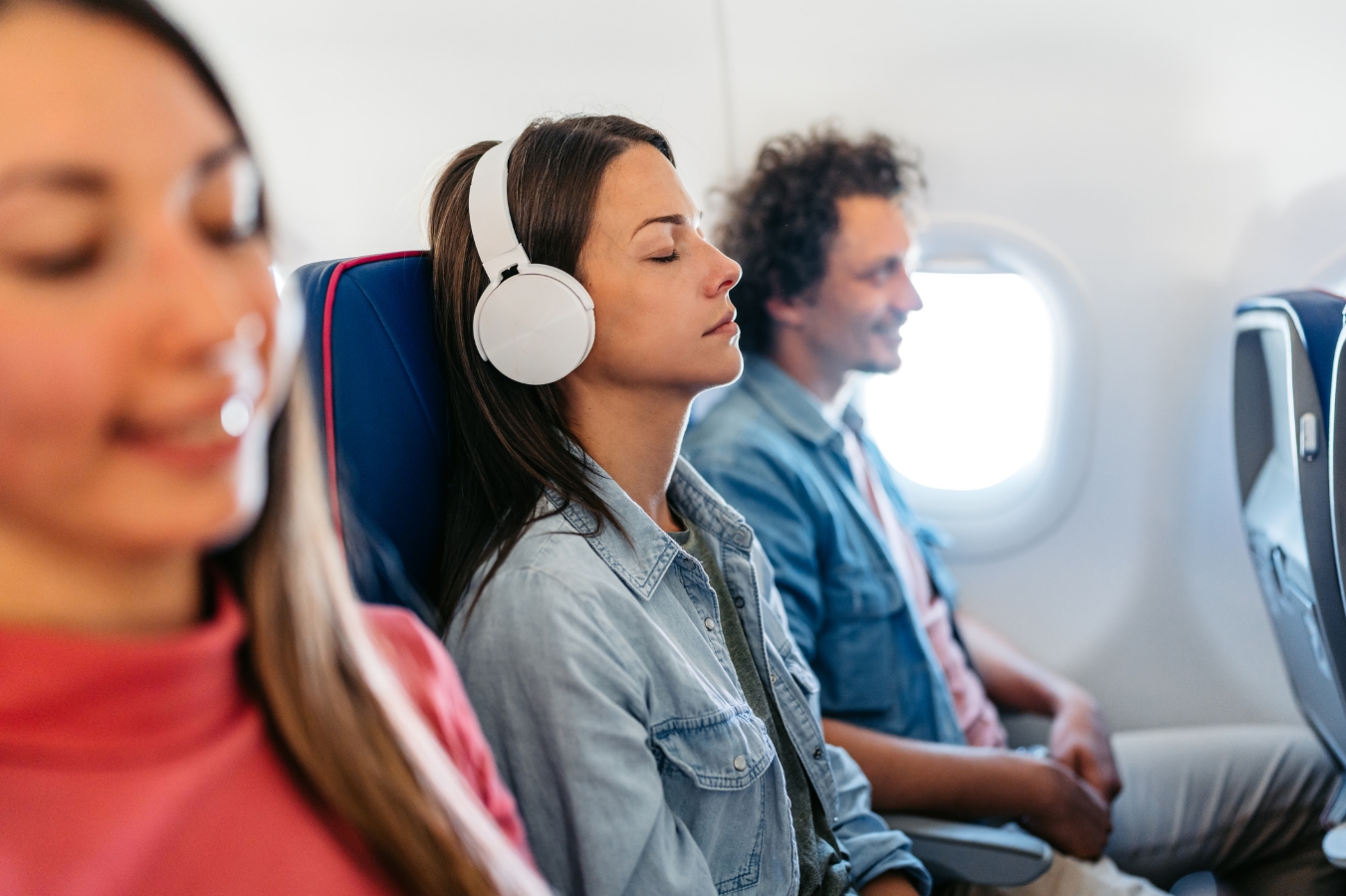
Adviсes • 27 May, 2025
How to overcome fear before the first flight
The first flight on an airplane is an important and exciting moment that can cause mixed emotions. On the one hand, the anticipation of new experiences and travel, on the other hand, a natural fear of flying, especially if you have never flown before. Many people experience anxiety due to the unknown, fear of heights, or lack of control over the situation. However, proper psychological preparation for the flight will help you feel more confident and calmer.
Why does anxiety occur before a flight?

Fear of air travel is common, and there are several reasons for it. Most often, people are afraid not of the flight itself, but of the unknown and loss of control. Unlike a car or train, an airplane seems less predictable, although statistics confirm that air travel is the safest mode of transport.
There are several typical reasons why there is a fear of flying by plane:
- Ignorance of the process. When a person does not understand what will happen on board, it causes great anxiety;
- Fear for safety. Despite statistics showing that aviation is the safest transport, anxiety remains;
- Height and confined space. Aerophobia is often associated with claustrophobia or acrophobia;
- Lack of control. The passenger is not in control of the situation and cannot change the course of events.
Understanding the reasons is the first step to overcoming the fear of flying for the first time. If you understand what exactly scares you, you can choose specific methods for dealing with anxiety.
How to prepare for the flight in advance?

Many people are looking for advice on how to overcome the fear of flying. The main thing is not to wait for the moment of landing, but to start working with your experiences even before leaving for the airport. Preparing in advance helps to bring anxiety under control.
Here are some recommendations that should be implemented a few days before the trip:
- Study the information. Look at how regular flights go, how planes work, what happens in turbulence. Understanding reduces uncertainty and fear;
- Choose the right place. In Centrum Air, you can choose a comfortable seat in advance - people with a fear of heights are more comfortable in the middle of the cabin, away from windows. For those who are bothered by noise, the seats closer to the nose are usually quieter there;
- Take care of distraction. Download podcasts, movies, calm music, or puzzles beforehand. This is a great way to keep your mind occupied and avoid intrusive thoughts.
In addition, you can discuss taking mild sedatives with your doctor. However, psychological preparation for the flight is much more effective if you consciously work with your fear.
What to do on the day of departure?

On the eve of departure, you should not overload yourself - neither with deeds nor thoughts. Even if you feel anxious, it is important not to provoke its growth. The fear of flying can be intensified by elementary haste or physical discomfort.
To make the day calm, adhere to the following tips:
- Start the day with meditation or light exercise to reduce stress levels;
- Arrive at the airport 2-3 hours in advance. This will remove the feeling of haste;
- Give up caffeine and alcohol. They increase anxiety;
- Choose light food that will not cause heaviness in the stomach.
If you feel that the fear of flying is growing, use the "5-4-3-2-1" technique: name 5 things that you see, 4 that you hear, 3 that you feel, 2 that you smell, 1 that you can taste. This will bring you back to the "here and now".
How to behave during the flight?

When you're already on board, the most important thing is to shift your attention. Do not give anxiety a chance to "grow". Even if you feel anxious, you can control your state. Remember: the first flight is not an endurance test, but an opportunity to learn how to cope with your emotions.
Recommended actions during the flight:
- Distract yourself with activities - a book, a movie, a logbook, music and games - everything that captivates reduces anxiety;
- Focus on breathing – deep inhale through the nose (4 seconds), hold (2 seconds), exhale slowly through the mouth (6 seconds);
- Take turbulence calmly – it is not dangerous and most often does not last long;
- Ask the crew if you feel unwell – flight attendants are trained to help with panic attacks;
- Repeat rational phrases to yourself: "It's normal", "I'm safe", "The flight will end soon";
- Talk to your neighbor – sometimes talking helps you relax.
Even if you don't manage to completely get rid of your fear the first time, you're well on your way to becoming a confident passenger. Regular flights and the repetition of these actions will help to form a stable habit of calmly accepting air travel.
Conclusion
After you have successfully overcome the first flight on an airplane, it is important to consolidate the positive experience. Analyze what helped you cope with fear and write down your feelings - this will help in the future. If the flight went well, praise yourself – this is a big step. If there are unpleasant sensations, do not reproach yourself. Aerophobia is overcome gradually, and each flight will be easier.
Fear of the first flight is a natural reaction, but it can and should be dealt with. Preparation, the right attitude and proven techniques will help you survive the flight calmly. Remember: millions of people fly every day, and aviation remains the safest transport.
Your first flight is not a test, but the beginning of new opportunities. The more often you fly, the more confident you will feel. In the meantime, take a deep breath, and forward to new horizons!